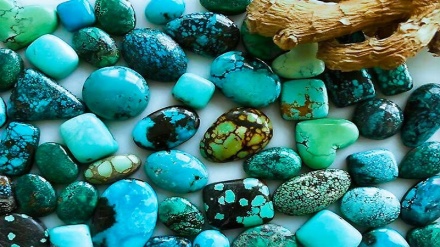Iranian Market (24)
Welcome to another episode of the series, Iranian Market. In this episode, we’re going to discuss Iran’s porcelain industry which is improving day by day.
As you know, having a healthy nutrition is a necessity in human communities. To have a healthy nutrition, we not only need healthy food but we also have to eat the food in appropriate and hygienic dishes. Porcelain wares have many customers around the world because of enjoying high quality in their manufacturing as well as having hygienic standards. The record history of manufacturing porcelain wares dates back to thousands of years BC. Before the Achaemenid era which dates back to 330- 550 BC, Iran exported the art of pottery along with the art of painting on dishes to China. It didn’t take long that Chinese people learned this art with love and became masters of this art. Chinese potters, after discovering high quality soil and using their skill, succeeded in making a fine white paste for the pots which was heat-resistant. And the result which was a high quality ceramic made by the Chinese was called china.
Chinese potters adorned their pots with colorful designs of birds of prey and ceremonies of serving kings or courtiers.
Iran-China exchange of products led to mutual impacts on the art of pottery between the two countries. In some junctures of Iranian history, including Safavid era, the art of pottery flourished more. About the development of the art of pottery and enamel work in Safavid era, Pierre Chardin, French tourist of 18th century writes: “Most of the time, it’s hard to distinguish between Iran’s enamel products and the Chinese ones. Sometimes Iran’s porcelain pots are even better than the Chinese ones in terms of beauty, quality and polishing.”
Today, the porcelain industry has developed dramatically. It used to be dedicated only to special customers but thanks to development of science and technology, the porcelain products with different designs and shapes are available for all. Porcelain pots are in fact polished ceramic wares which are categorized in different grades based on manufacturing process which includes heat, temperature, the percentage of water absorption, and transparency.
A high quality porcelain ware has some features like low permeability and elasticity, considerable solidness, hardness, whiteness, transparency, resonance and a high resistance to chemical attack, thermal shock and not being harmed by washing or when being used in microwave.
Porcelain wares are usually baked in 1400 degrees centigrade and are of high quality regarding hygienic standards. These wares are not affected by food substances and can be used for serving both hot and cold foods.
Samuel Gregorian is an Armenian trader who has been importing Iranian porcelain, crystal and glass wares for five years. He sells Iranian products in a shop in Yerevan. He says: “Iran is not only a good neighbor for Armenia, but it is also a good friend for our nation. This characteristic makes our cooperation easier.”
He continues: “For some years that we've been importing porcelain wares made in Iran because of their high quality and reasonable price. Cooperating with Iranian partners is very easy. We understand each other very well.”
Armen Haratounian is another trader with a store in the Armenian city of Stepanavan bordering Georgia. He says he travels more than 140 km every month to buy porcelain wares made in Iran from Mr. Gregorian’s shop. He says:
"My customers prefer Iranian products.”
Figures show that one to one and half million tons of porcelain products are made in the world. The Islamic Republic of Iran is the second producer of porcelain works in the world.
Today more than 20 major factories producing porcelain products are actively working in Iran. The Islamic Republic exports more than 10% of its products to different countries around the world including Iraq, Russia, Armenia, Afghanistan, Azerbaijan Republic, Georgia, Turkmenistan, Kazakstan, Turkey and UAE.
Iran’s first porcelain factory after the victory of Islamic Revolution was Zarrin Porcelain Industries. Zarrin is the biggest producer of porcelain wares in West Asia and has the most modern factories of porcelain in the world. This factory exports its products to more than 20 countries around the world.
Maqsood porcelain company and Taqdis porcelain company are Iran’s other major porcelain manufacturers.
AE/RM/SS


